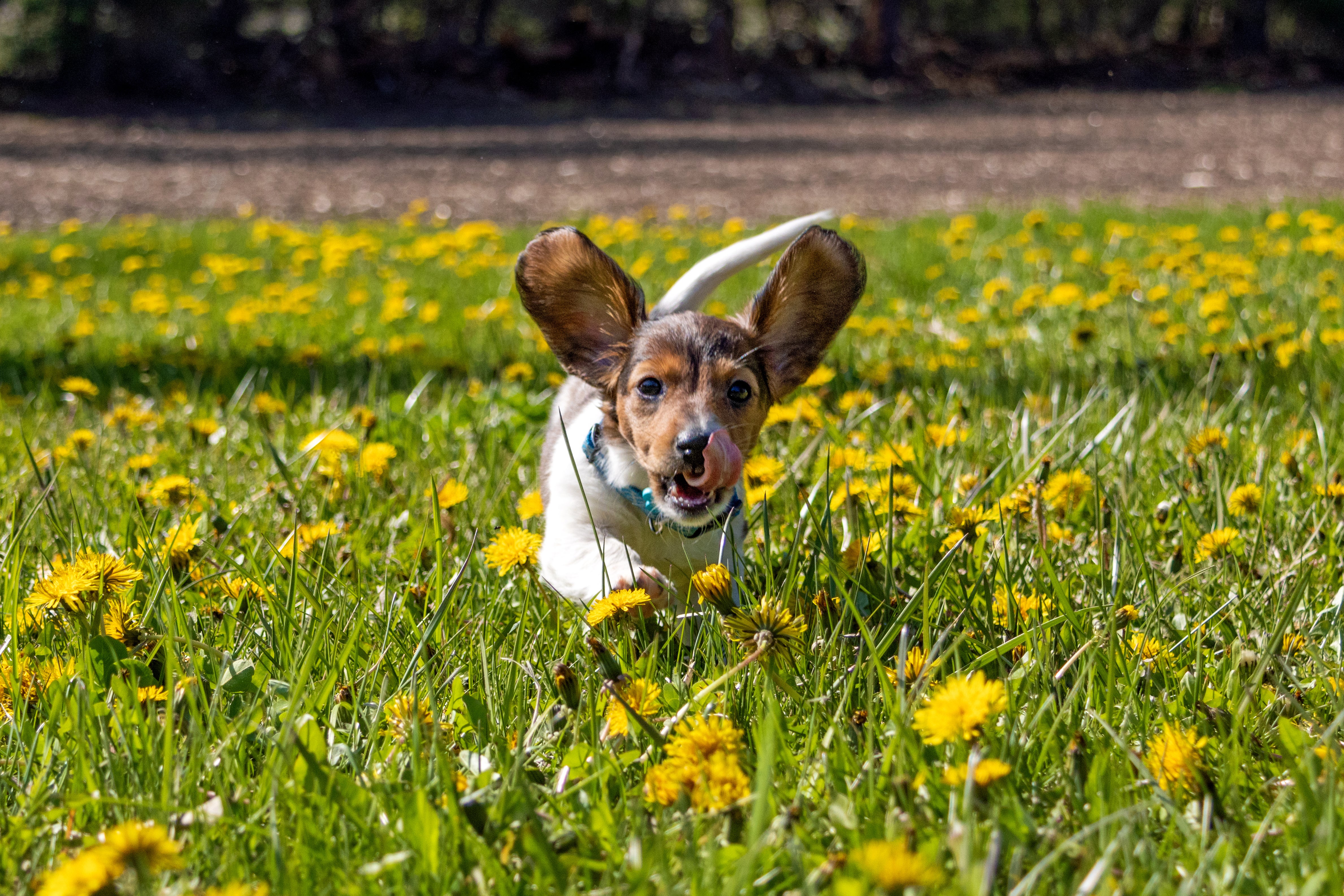Miniature Long-Haired Dachshund
A sausage dog with a flowing mane that'd make Farrah Fawcett jealous, the Miniature Long-Haired Dachshund is a pint-sized yet powerful pup. Don't let their short legs fool you—they are brave adventurers with an incredible sense of smell. Indoors, they're playful cuddle monsters, but outdoors, they're tiny explorers with a surprising amount of muscle under that luxurious fur.
Breed characteristics carousel
Learn More
Need to Know
- Dog suitable for owners with some experience
- Extra training required
- Need to be aware of potential health issues
- Enjoys active walks for under an hour a day
- Minimal drool
- Requires grooming every other day
- Chatty and vocal dog
- Barks and alerts to visitors/anything unusual
- Could have issues with unknown dogs but gets along with known dogs
- May need additional training to live with other pets
- May need additional supervision to live with children
- Needs a small yard and can happily live in urban settings
- Can be left alone occasionally with training

Personality
Do not underestimate the Mini Long-Haired Dachshund! They are small in stature but have giant personalities. Strong-willed and independent as teenagers, they want to take on the world and have the confidence to do so.
Mini Long-Haired Dachshunds are smart and fast learners but they can be stubborn. Patient, funny owners are a must. These pups need training, playtime, exercise, and socialization to thrive. Shy with strangers, they love their families and can bond with multiple people.
Dachshunds were originally bred for badger hunting in 15th-century Germany. Miniature Dachshunds emerged in the 1800s, and Long-Haired Miniatures likely appeared around the same time. While the exact origin is unclear, the Long-Haired Dachshund breed likely arrived in America in the late 20th century alongside their regular-sized counterparts.
Mini Doxies are less robust than their standard counterparts. They are easier to pick up, but also easier to trip over. They do well with owners who won’t mind matching the dog’s fitness and activity goals, and ones who are interested in lifelong training. Owners will need to take on grooming as part of the Long-Haired Dachshund’s routine, particularly brushing out their glamorous, glorious coats. Single-story houses or ones without stairs are best, although ramps can be installed to prevent injuries.
The Mini Long-Haired Dachshund does well with a half hour to an hour’s worth of exercise, incorporating plenty of games, training, and fun activities. When properly exhausted, these mini mops are happy to flop down at your feet or in your lap. A bored, lonely, or under-stimulated one, however, can be unhappy, noisy, and act out like a huffy teenager.
Mini Doxies don’t require a ton of space and can do well in more urban settings with the right amount of stimulation and exercise. If you have a backyard and plan on letting them off-leash, keep in mind they’re able to contort their little bodies into small spaces and under fences. They are extremely skilled diggers and can take off like a shot if they are on the scent of something they want. While they can be lifted, they shouldn’t be lifted often, making single-story houses or apartment buildings with elevators preferable.
Miniature Long-Haired Dachshunds have majestic-looking coats that need to be maintained by brushing and combing at least once a week. These petite pouncers need special attention around their ears as drop-eared dogs are more likely to get ear infections. While a dainty eater, a Mini Doxie can sometimes get food stuck in their long ears. Extra hair between their paw pads needs to be trimmed regularly, too.
Mini Doxies do well with “gentle parenting” training, focused on positive reinforcement. They have a stubborn streak but can be trained to be obedient. Socialization is important, especially with family members and other dogs. They should be taught to walk on a leash or have good recall, especially if you plan on letting them romp free in places where they could pick up a scent and never let it go. Clever and independent, they enjoy trick training, puzzles, and games.
While generally adaptable, Miniature Long-Haired Dachshunds aren’t the best choice for a busy family with young children. They don’t like to be left alone for long periods, and their fragile bodies can be easily damaged by being picked up the wrong way, no matter how unintentional it might be. They do best with families with no children or older children who can respect a Mini Doxie’s needs. While they bring a lot of noise through fervent barking, they prefer a quieter home with owners who are home most of the day.
The cost of a Miniature Long-Haired Dachshund from a breeder is significantly more than the cost of adopting one from a local shelter or rescue. The adoption fee usually covers additional items such as spaying or neutering, vaccines, and microchipping.

Learn more about feeding and caring for your Miniature Long-Haired Dachshund on Purina.
Did you know?
- Dachshund means “badger dog” in German.
- They were called Liberty Hounds during the World Wars to disassociate them from Germany.
- Dachshunds come in three coat varieties: Smooth, Wire-Haired, and Long-Haired.
